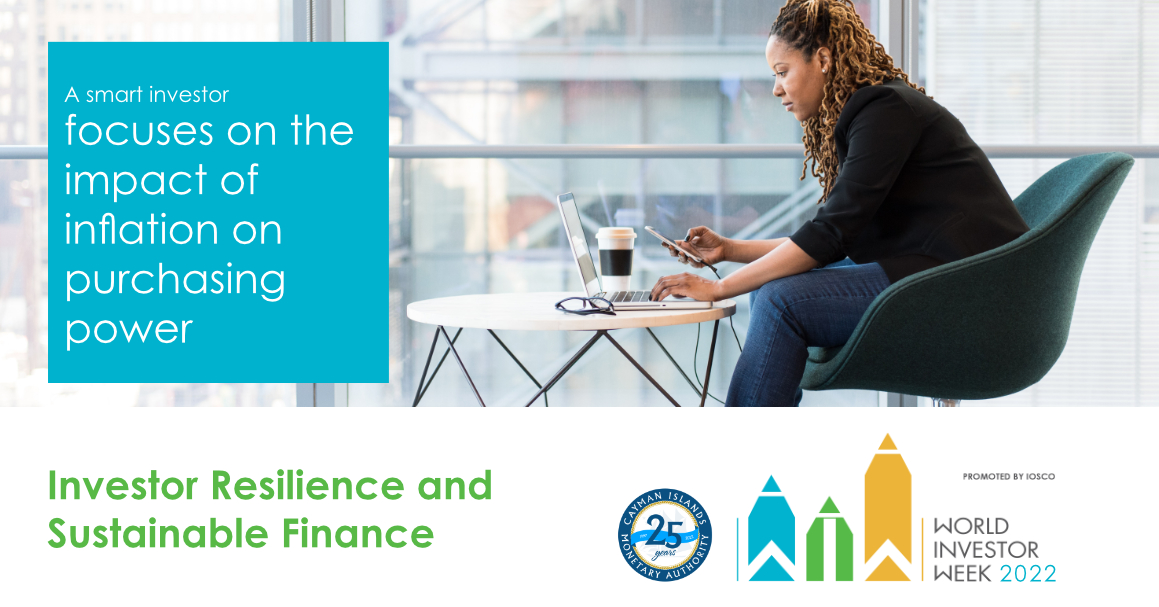World Investor Week is a global campaign promoted by the International Organization of Securities Commissions (IOSCO) to raise awareness about the importance of investor education and protection and highlight the various initiatives of securities regulators in these two areas.
For CIMA, this year's campaign will take place from 3 - 9 October and is designed to promote financial resilience and help investors make sound decisions.
SMART INVESTOR TIPS
TIP #1 - A SMART INVESTOR UNDERSTANDS THAT RISKS EXIST IN ALL INVESTMENTS

Investing requires balancing rewards and risk. Whether you are investing hundreds or thousands of dollars, a smart investor understands that to gain potential rewards, he or she must be prepared for potential risks. You are responsible for deciding how much risk you want to take and finding ways to mitigate against such investment risks.
You can manage these risks by diversifying your investment portfolio. Instead of putting all your money into one type of investment, spread your money across different platforms. Diversification is not a guarantee that you will not lose money on your investment, but it does enable you to reduce your risk of losses while possibly increasing your return potential across a portfolio of investments.
Remember -
-
There is no such thing as a risk-free investment
-
As a general rule, if you take limited risk, you will see limited returns. Therefore, there must be a balance between risks and rewards
-
Having a diversified investment portfolio helps reduce the risk of losing all your money
-
Keep informed about your investments and ask questions
-
Conduct research before investing to protect against financial scams
TIP #2 - A SMART INVESTOR WEATHERS NEGATIVE FINANCIAL SHOCKS WITH AN ADEQUATE EMERGENCY FUND
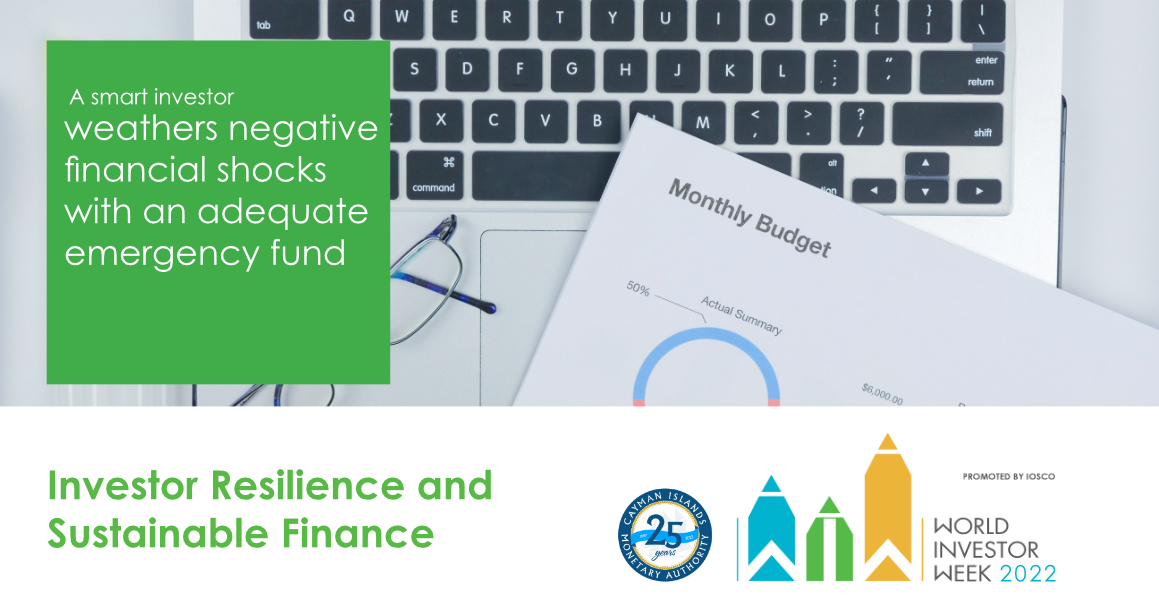
The COVID-19 pandemic stopped the entire world and was an entirely new learning experience for many of us. While lessons may vary, one thing remains true - it reminded us to always be prepared for life’s unexpected challenges.
An emergency fund is a stash of money put aside to cover unexpected financial surprises such as job loss, medical emergencies, car troubles, or natural disasters. Aside from financial stability, pros of having an adequate emergency fund includes helping keep your stress level down, keeps you from spending on a whim and keeps you from making bad financial decisions. Here are some tips to help you get started on an emergency fund:
- Look at what you spend – aim to have your fund cover 3 to 6 months’ worth of living expenses
- Decide if you need to save more
- Something is better than nothing - the important thing is that you've started saving something. Smaller amounts of money on a regular basis can go a long way
TIP #3 - A SMART INVESTOR FOCUSES ON THE IMPACT OF INFLATION ON PURCHASING POWER AND USES REAL RATES OF RETURN TO ASSESS INVESTMENT PERFORMANCE
When deciding where to invest, always take into account your risk tolerance, purchasing power and the real rate of return. Purchasing power measures how much a unit of currency can buy. It can be affected by policy changes, major events, industry changes, and inflation. Inflation is the rise in the prices of goods or services and subsequent decline of purchasing power over time.
The real rate of return is the annual percentage of profit earned on an investment adjusted for inflation. The real rate of return accurately indicates actual purchasing power and is calculated by subtracting the inflation rate from the nominal interest rate.
TIP #4 - A SMART CONDUCTS RESEARCH BEFORE INVESTING TO PROTECT AGAINST FINANCIAL SCAMS
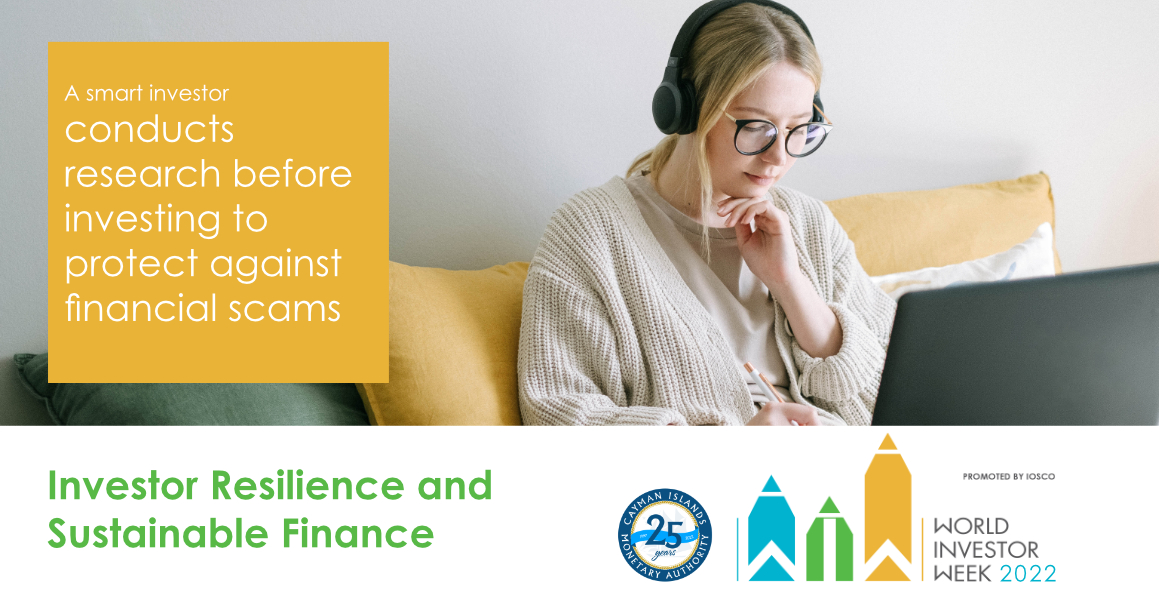
One of the first steps in choosing an investment is to check whether an entity is registered or licensed by the Cayman Islands Monetary Authority (CIMA). If an entity is registered or licensed by CIMA, that means it has met its basic regulatory obligations. To verify if an entity is registered or licensed by CIMA, see Investment Funds statistics or Securities statistics.
CIMA also maintains a list of mutual funds that have been removed from the register. The list of these terminated entities is only up until the date shown and can be viewed here.
Please note that an entity being registered or licensed should not be taken as an endorsement by CIMA that you will not lose your investment.
Any suspicious or fraudulent activity should be reported immediately to the Financial Crime Investigation Unit. This specialized unit is dedicated to investigating criminal offences related to money laundering, the financing of terrorism and fraud. Suspicious activity for financial crimes can be both hard and easy to spot.
Consider these examples of potential signs:
- Suspicious shops, websites, social media accounts, and email addresses claiming to sell medical supplies currently in high demand, such as surgical masks (i.e Interpol case)
- A business that doesn’t seem to have many customers somehow manages to stay open
- Your business ‘investor’ uses multiple birthdates or various names
- A stranger offers to pay you $100, if you cash a $1,000 cheque for them
- You get an offer from someone living overseas to buy the vehicle you have for sale on behalf of an unnamed person
- Phishing schemes that prey on virus-related fears
Anyone who believes they may be a target or victim of a financial scam is encouraged to contact the Royal Cayman Islands Police Service’s Financial Crimes Unit on RCIPS.FCU@rcips.ky or +1 345 949-8797.
TIP #5 - A SMART INVESTOR REALISES THAT SUSTAINABLE FINANCE MAY BE REFERRED TO IN MANY DIFFERENT WAYS, SUCH AS ENVIRONMENTAL, SOCIAL, AND GOVERNANCE (ESG) INVESTING, SOCIALLY RESPONSIBLE INVESTING, AND IMPACT INVESTING
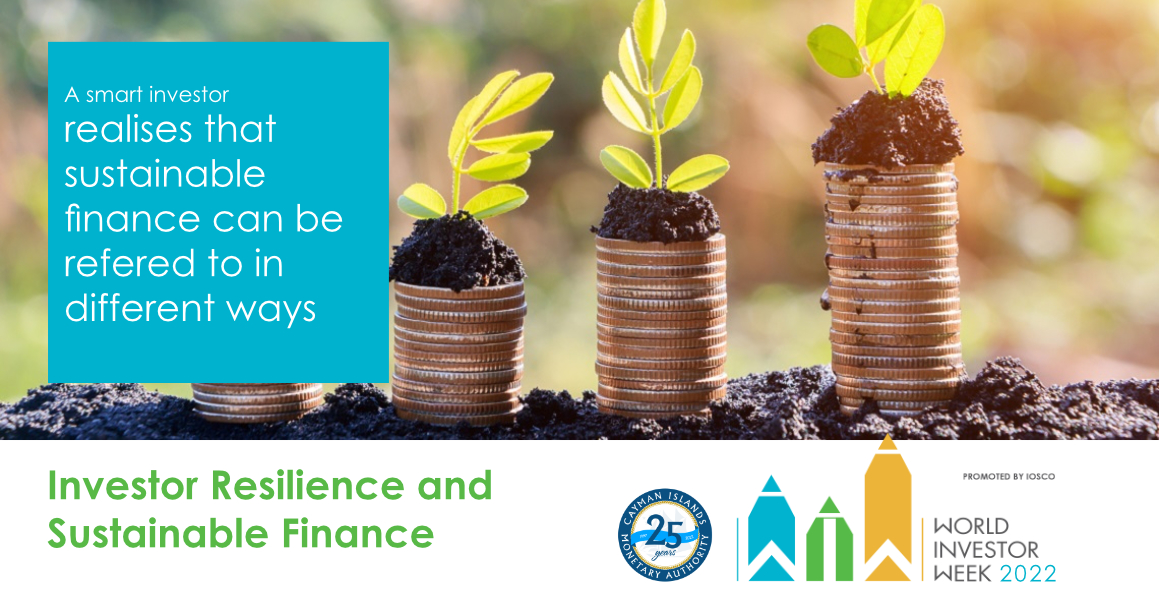
Environmental, social and corporate governance (ESG) investing, socially responsible investing and impact investing are terms that fall under sustainable finance but can sometimes overlap and may involve different approaches to investments.
Socially responsible investing involves considering the social impact, specific ethical criteria or moral values of an investment as well as the expected financial return. Although this method may consider ESG factors, it goes a step further by seeking out or eliminating investments based solely on a specific ethical consideration.
Impact investments aim to help an organisation or business generate a positive and measurable social or environmental impact in addition receiving a financial return. This type of investing provides capital to address challenges in sustainability.
ESG investing focuses on companies making an active effort to either limit their negative societal impact and/or deliver benefits to society. It is an increasing trend to use ESG factors to steer investment decisions. Key ESG factors fall under these categories:
- Environmental – Conservation of the natural world
- Social – Conservation of people and relationships
- Governance -Standards for running a company
You can read more about ESG and sustainable investing here.
TIP #6 - A SMART INVESTOR REVIEWS AN INVESTMENT'S DISCLOSURE DOCUMENTS TO SEE HOW IT WEIGHS VARIOUS ENVIRONMENTAL, SOCIAL, AND GOVERNANCE OR SUSTAINABLE FINANCE FACTORS

Like all investments, it is important that you understand what you are investing in. Be mindful that ESG criteria for one investment may differ from another’s. You can find more information about how an investment incorporates ESG and how it weighs ESG factors in its disclosure documents. You should read all disclosures carefully to make sure you understand the investment and how its ESG orientation may affect its risk. Potential ESG factors to consider include:
|
Environmental Conservation of the natural world |
Social Conservation of people and relationships |
Governance Standards for running a company |
|---|---|---|
|
Climate change and carbon emissions |
Customer satisfaction |
Board composition |
|
Air and water pollution |
Data protection and privacy |
Audit committee structure |
|
Biodiversity |
Gender and diversity |
Bribery and corruption |
|
Deforestation |
Employee engagement |
Executive compensation |
|
Energy efficiency |
Community relations |
Lobbying |
|
Waste management |
Human rights |
Political contributions |
|
Water scarcity |
Labour standards |
Whistleblower schemes |
TIP #7 - A SMART INVESTOR CONSIDERS WHETHER AN INVESTMENT'S STATED APPROACH TO SUSTAINABLE FINANCE MATCHES THE INVESTOR'S INVESTMENT GOALS, OBJECTIVES, RISK TOLERANCE AND PREFERENCES
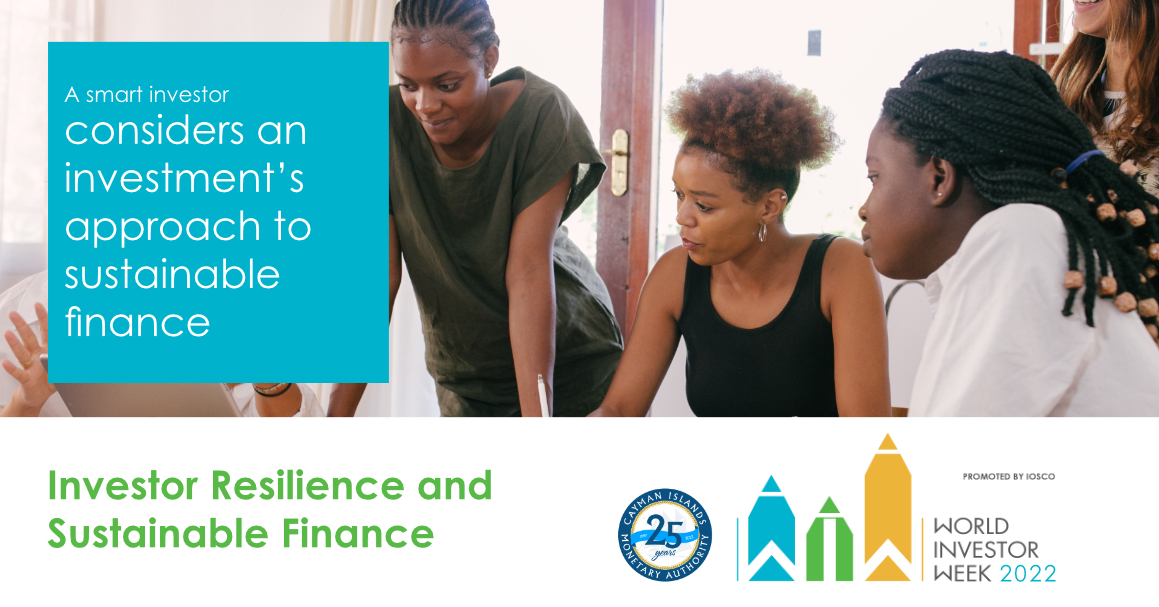
It is always important to understand whether an investment’s stated environmental, social and governance (ESG) approach matches your investment goals, objectives, risk tolerance, and preferences. So be sure to choose an approach that is right for you. Here are some things to consider:
- Some investments focus on ESG investing while others consider ESG factors alongside other factors
- Different funds may weigh ESG factors differently
- Some funds that don’t have “ESG” in the name may still incorporate elements of ESG investing into their portfolios.
- ESG rating agencies are presently unregulated; therefore, their methodologies are not verified and produce varying ratings in the market for the same investment.
- Consider what is important to you and match your investments to such values and priorities e.g., low carbon footprint, or diversity, equality and inclusion policies.
- Conduct proper due diligence on potential investments. Greenwashing is now a growing phenomenon - where funds are being misrepresented as providing ESG targets or firms exaggerate the environmental, social or governance benefits of a particular investment.
Sign up for our E-alerts
Be the first to know about releases and industry news and insights.


